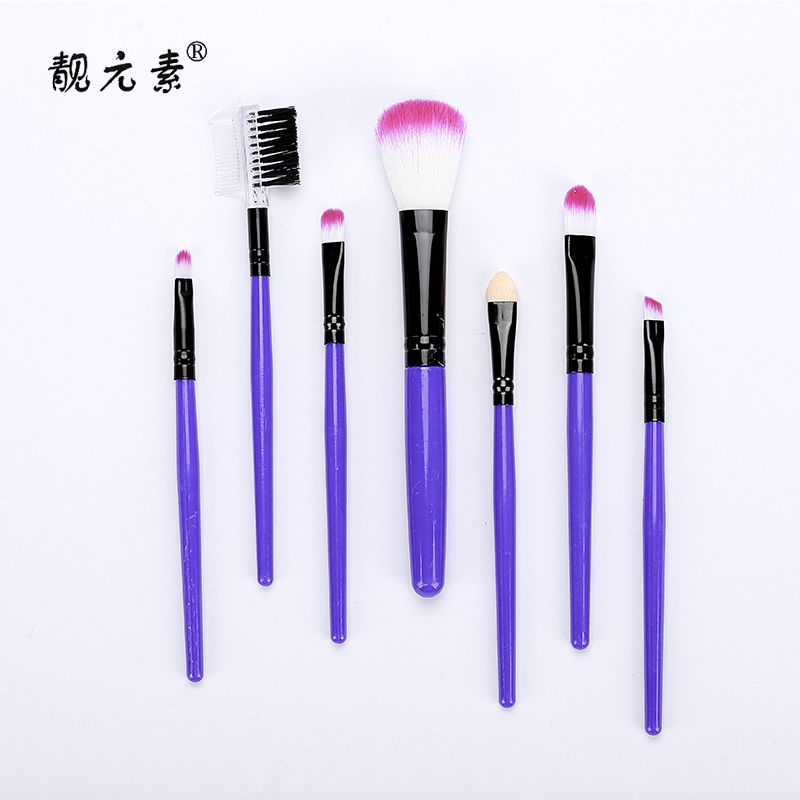Industry news
Vegan Beauty Movement Challenges Natural Bristle Industry: Synthetic Alternatives Outsell Animal Hair Brushes in UK
- 712 Views
- 2025-08-01 01:30:58
Vegan Beauty Movement Drives UK Market: Synthetic Makeup Brushes Outsell Animal Hair Counterparts
The vegan beauty movement, fueled by growing consumer demand for cruelty-free and sustainable products, is reshaping the global cosmetics industry—with the UK leading the charge. A pivotal shift is underway: synthetic makeup brushes have officially overtaken animal hair brushes in UK sales, marking a milestone for ethical beauty and technological innovation.
The Rise of Vegan Beauty: More Than a Trend
Vegan beauty isn’t just about avoiding animal-derived ingredients; it’s a holistic commitment to animal welfare, sustainability, and transparency. In the UK, where 63% of consumers prioritize ethical purchasing (YouGov, 2024), the movement has gained unprecedented momentum. Social media campaigns, celebrity endorsements, and strict animal welfare regulations (such as the UK’s Animal Welfare Act 2006) have normalized cruelty-free choices, pushing brands to rethink product lines—including makeup tools.

Synthetic Brushes: From “Second Best” to Superior
For decades, animal hair brushes (often sourced from goats, squirrels, or badgers) were hailed for their softness and ability to pick up pigment. However, their reign is fading, thanks to leaps in synthetic bristle technology. Modern synthetic fibers—made from materials like nylon-6,6, PBT (polybutylene terephthalate), and PE (polyethylene)—now rival or outperform animal hair in key metrics:

- Consistency & Quality Control: Unlike animal hair, which varies in texture and length (even from the same animal), synthetic bristles are engineered for uniformity. This ensures every brush in a set performs identically, a boon for both consumers and professional makeup artists.
- Hygiene & Durability: Animal hair retains natural oils and moisture, making it prone to bacterial growth and degradation over time. Synthetic fibers, by contrast, are non-porous, quick-drying, and resistant to mildew—extending brush lifespan by 30-40% (Cosmetics Design Europe, 2023).
- Ethical & Sustainable: Synthetic brushes eliminate the ethical concerns of animal farming, which often involves confined spaces, shearing stress, or inhumane practices. Additionally, advancements in eco-friendly manufacturing (e.g., using recycled plastics or biodegradable polymers) address sustainability critiques, with some brands now offering brushes made from 100% post-consumer recycled materials.
UK Market Data: A Tipping Point
The numbers tell the story. According to Euromonitor’s 2024 UK Cosmetics Tools Report, synthetic makeup brushes now command 58% of the market share, up from 32% in 2018. Animal hair brushes, meanwhile, have plummeted to 32%, down from 59% six years ago. This shift isn’t just about ethics—it’s about consumer satisfaction. A 2023 consumer survey by The Vegan Society found that 78% of UK makeup users prefer synthetic brushes, citing “softer texture” and “better value” as top reasons.
Industry Adaptation: From Resistance to Innovation
Traditional animal hair brush manufacturers are scrambling to adapt. Some have pivoted to “ethical natural bristle” lines, claiming humane sourcing, but these have failed to gain traction—consumers increasingly view any animal-derived product as non-vegan. Others, like luxury brand Charlotte Tilbury, have launched fully synthetic ranges, leveraging marketing campaigns that highlight “vegan luxury” and performance.
Synthetic bristle suppliers, however, are thriving. Companies specializing in high-tech fibers are investing in R&D to mimic animal hair’s natural benefits. For example,仿生设计 (biomimetic design) techniques now create synthetic bristles with micro-grooves, mimicking the way animal hair traps and releases powder pigment. The result? Brushes that pick up color as effectively as squirrel hair but without the ethical cost.
The Road Ahead: Global Implications
The UK’s lead is likely a preview of global trends. With the EU’s ban on animal-tested cosmetics (in place since 2013) and growing vegan movements in North America and Asia, synthetic brushes are poised to dominate worldwide. As technology improves—think self-cleaning fibers or 3D-printed brush heads—expect even faster adoption.
For brands and manufacturers, the message is clear: cruelty-free, high-performance synthetic brushes aren’t a niche—they’re the future. The vegan beauty movement has spoken, and the industry is listening.











